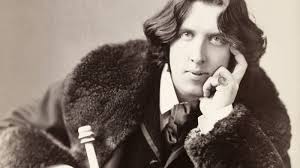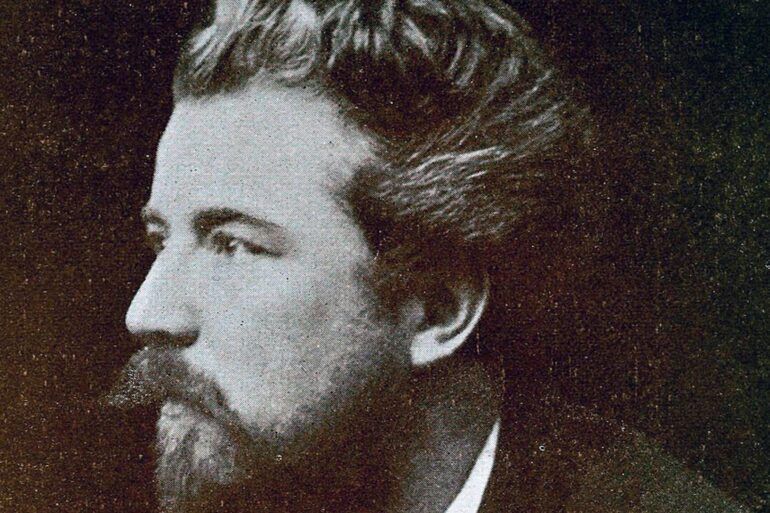A major figure in the ‘Celtic Revival’, William Sharp was a poet, novelist, literary biographer and critic, born in Paisley.
Early years.
William was born on 12 September 1855 at 4 Garthland Place, Paisley. His father was a muslin manufacturer, and his mother was the daughter of the Swedish Vice Consul in Glasgow. His childhood was one of wealth and family summer holidays were spent in the Inner Hebrides. In 1863 his aunt and uncle came to stay for the summer, where William and his cousin Elizabeth began a close friendship. He left Paisley at the age of twelve and following school he entered the University of Glasgow to study literature.
Gaining influence
William’s health was not robust and following a spell of rheumatic fever he left university to spend a year in Australia to improve his health. He returned to London in 1878 and reacquainted himself with his cousin Elizabeth. She knew several influential figures in the literary circles of the time and helped William to forge a career as a poet. In 1884 William and Elizabeth were married, and by the end of the 1880’s they were well known within the cultural scene. Elizabeth was a talented writer and biographer in her own right. By this time William was well established with three books of poetry plus articles and reviews in cultural magazines.
Famous friends
He had a wide circle of literary associates including W B Yeats, Robert Louis Stevenson, and Oscar Wilde.

Oscar Wilde
Poetry
His life of culture however took an extraordinary turn in 1891. Following a romantic affair with Edith Rinder during a holiday in Italy, William began writing poetry under the name of Fiona MacLeod. The work created by MacLeod was distinguished by its romantic themes based on the stories, myths, and legends of the Celtic culture. This new poetry was an instant success and inspired many composers to set the work to music.
The most well known setting of MacLeod’s work was the adaptation of the verse drama The Immortal Hour as the libretto for Rutland Boughton‘s hugely successful opera of the same name, completed in 1914.
Alter-egos and identities
The influence of Fiona MacLeod’s work to the emerging Celtic revival movement at the end of the 19th century was immense. MacLeod could be thought of as an alter ego for William Sharp. It allowed him to express himself in more romantic terms.
Readers however were curious to know more about the identity of the mysterious Fiona MacLeod, but William and Elizabeth Sharp resisted any questions. Privately William termed this dual identity “Wilfion.”
His death
William was known as a progressive thinker and advocate of women’s rights. In the 1890’s he was also a member of the occultist society called the Hermetic Order of the Golden Dawn.
William had suffered with ill health throughout his life. And unfortunately his health however failed during a visit to Sicily. He died on 12 December 1905 at the Castello di Maniace and is buried there with a large Celtic cross as a grave marker. He was 50 years old. The identity of Fiona MacLeod only became known following his death. William Sharp led a full life and one which deserves to be more widely recognised especially in Scotland’s year of stories, myths, and legends.
